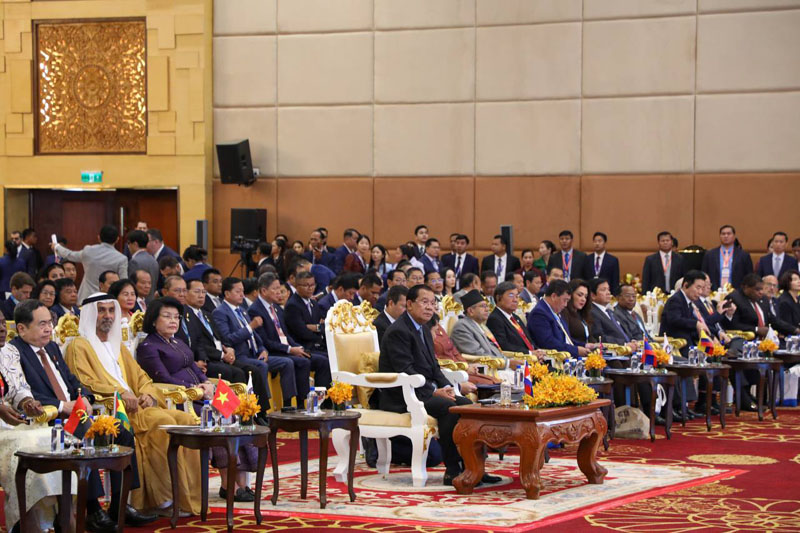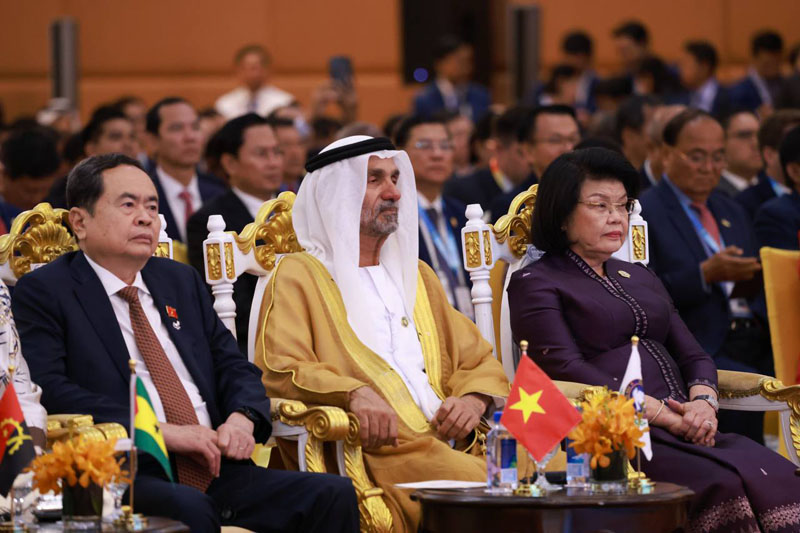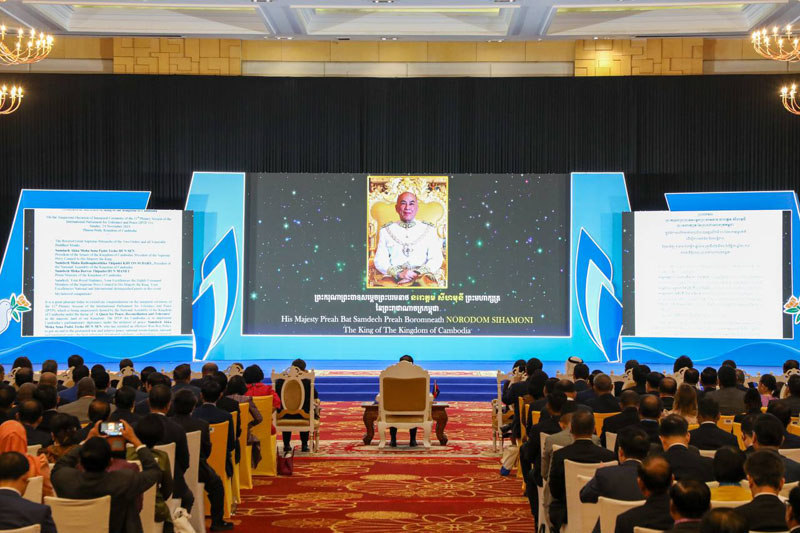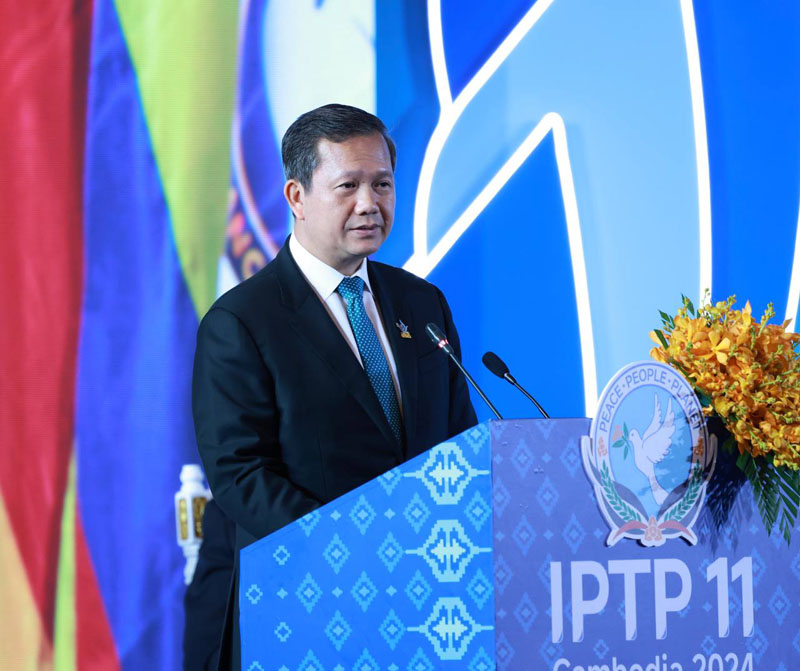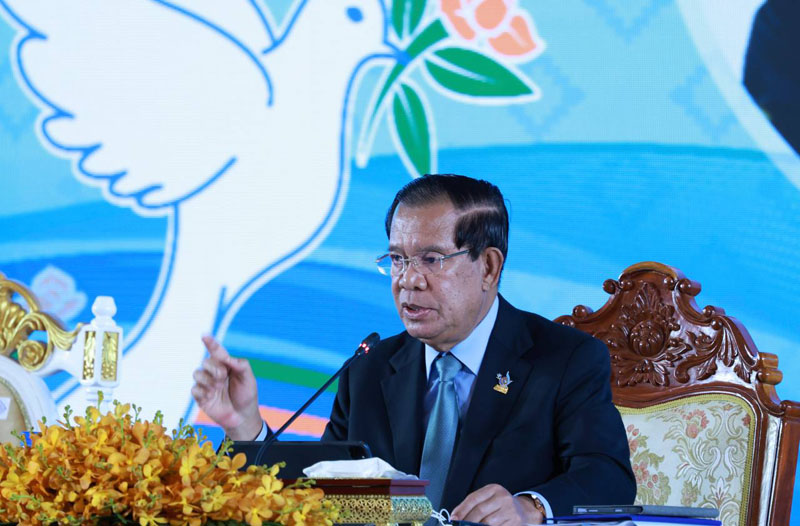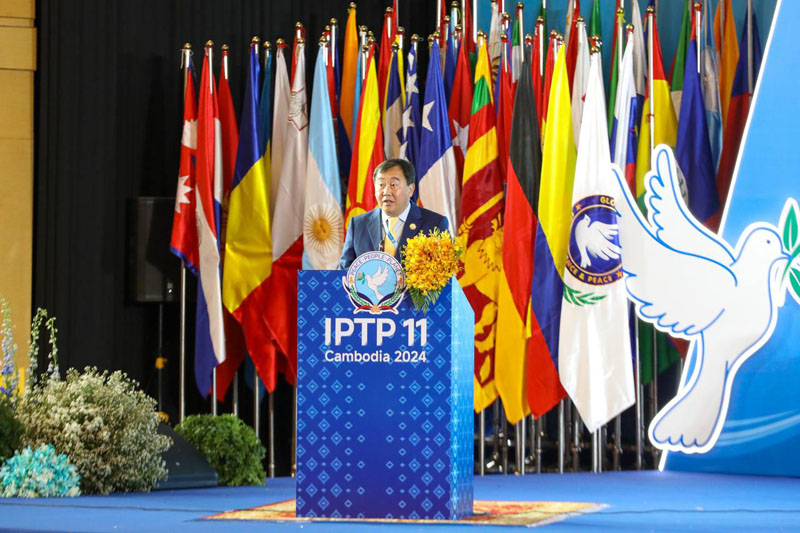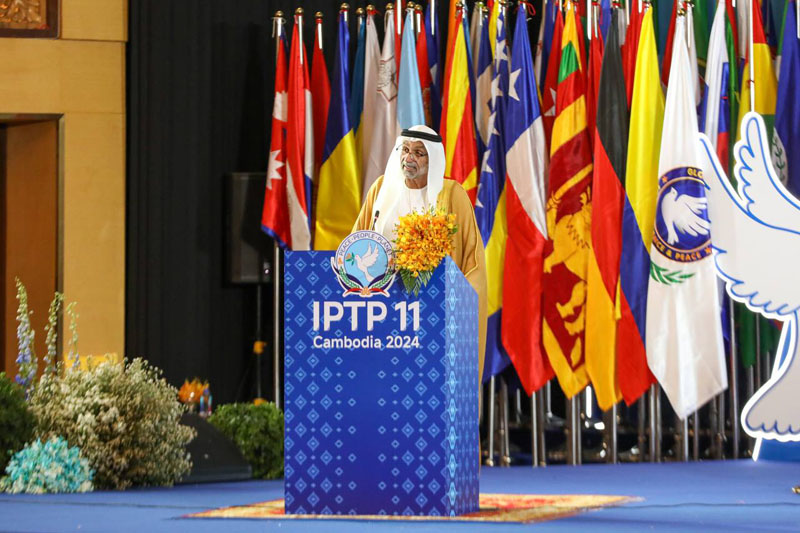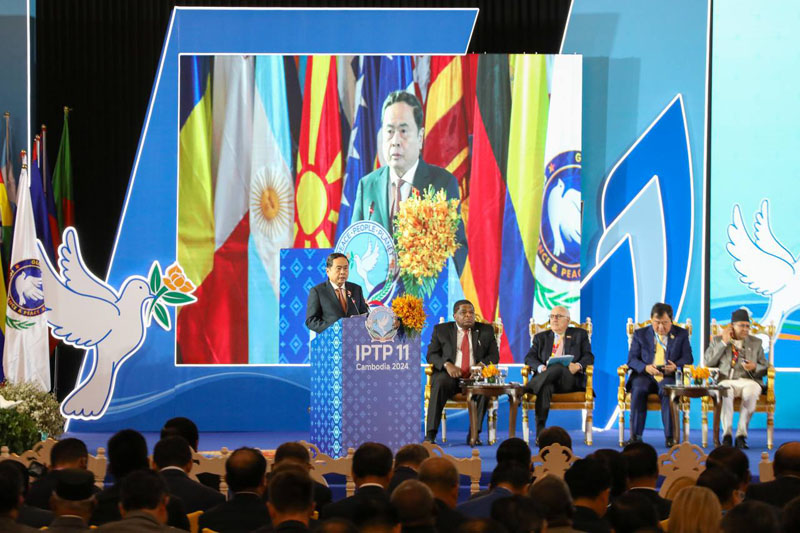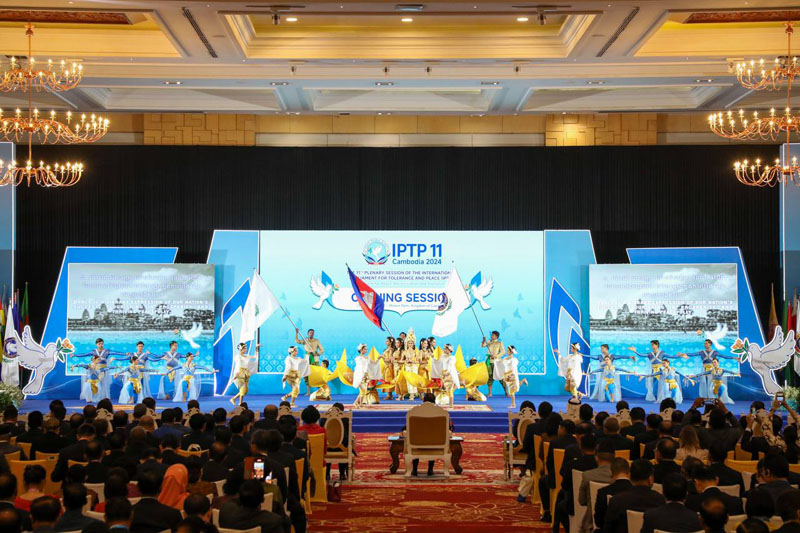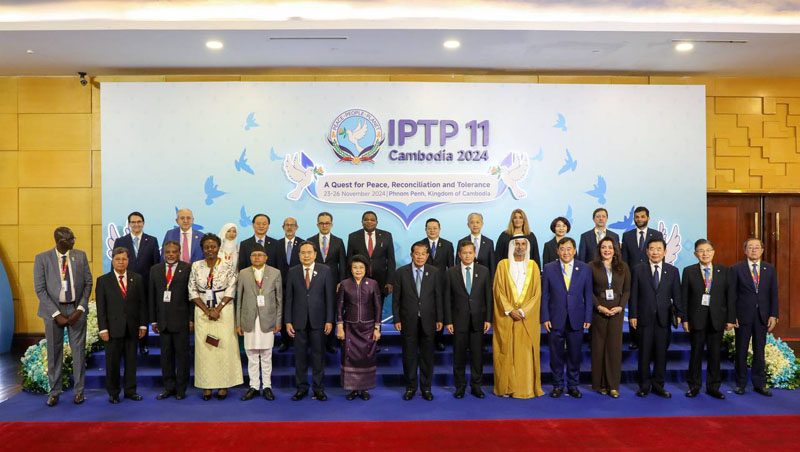Phnom Penh, 24 November 2024 – At the opening of the 11th Plenary Session of the International Parliament for Tolerance and Peace (IPTP) on Sunday, Samdech Akka Moha Sena Padei Techo Hun Sen, President of the Senate, elaborated on achieving full peace in Cambodia.
Speaking before 200 national and international guests from more than 50 countries, the former prime minister shared his deep experience in pursuing peace and reconciliation for the nation and its people for more than 40 years.
Beginning with his struggle to liberate Cambodia from the genocidal Pol Pot regime, he highlighted how his unwavering dedication and personal sacrifices were instrumental in achieving complete peace for the Cambodian people.
Following the achievement of peace nationwide in 1998 through his Win-Win policy, Samdech Techo Hun Sen said he prioritized justice for victims of the Pol Pot regime. This led to the establishment of the Extraordinary Chambers in the Courts of Cambodia (ECCC) in collaboration with the United Nations to prosecute regime leaders.
Samdech Techo Hun Sen also led Cambodia’s integration into the region and the international community, creating new opportunities for diplomatic relations, economic cooperation, and sustainable development. Since joining ASEAN in 1999, Cambodia has chaired the association three times, greatly benefiting from its international partnerships and numerous bilateral and multilateral free-trade agreements.
The Senate President highlighted Cambodia’s transformation from a poor, conflict-ridden society into one that is stable, peaceful and secure, where people are beginning to experience the dividends of peace and development. Prior to the COVID-19 pandemic, poverty had been reduced to less than 10 percent. Cambodia meanwhile remains on track to graduate from its Least Developed Country (LDC) status by 2029. The new Royal Government formed last year has launched the Pentagonal Strategy, focusing on economic growth, job creation, equity, efficiency, and sustainability. Its five priorities are people, roads, water, electricity, and technology, emphasizing human capital development to achieve the nation’s goal of becoming a high-income country by 2050.
Samdech Techo Hun Sen reaffirmed his dedication to fostering a culture of dialogue with various stakeholders to promote harmony, strengthen national unity, and further cultivate democracy in Cambodia. His lecture sought to provide a deeper understanding of the value of peace, the complexities of achieving national reconciliation, and the sustained efforts required to maintain peace, particularly for developing nations.
The Senate President’s remarks have contributed to a Peace Charter for Humanity and the Planet, scheduled to be adopted on Monday. The charter’s five pillars are conflict prevention, peacebuilding processes and good mediation, transitional justice, post-conflict reconstruction and humanitarian response, and food security and sustainable development in response to climate change.
Samdech Techo Hun Sen underscored the importance of the Peace Charter as a vital tool for practical implementation, promoting adherence to international law while remaining adaptable to the specific contexts of individual nations with the well-being of people as its central focus.
In addition to the Peace Charter, the 11th Plenary Session is scheduled to adopt a declaration that strongly reaffirms the IPTP’s collective commitment to promoting peace.
